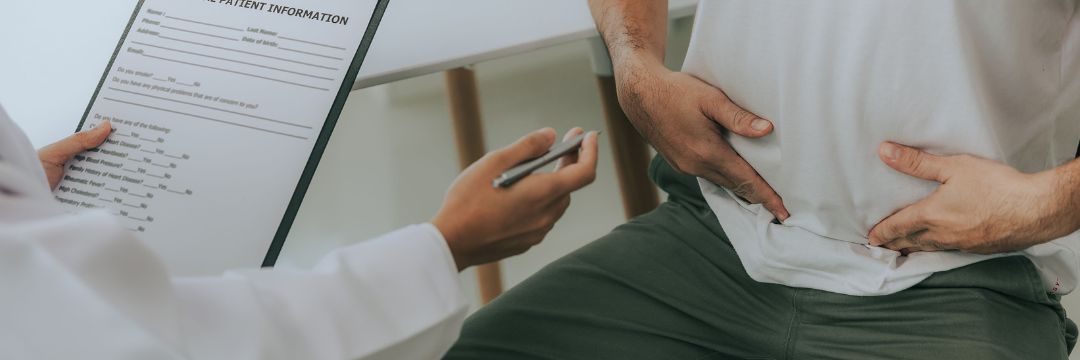Hernia
Hernias are exceptionally common, with upwards of 25% of men developing an inguinal or groin hernia over their lives. Of course, only a fraction of these men get the hernia repaired because, for most, it never materializes with pain or discomfort. Similarly, while very few women experience groin hernias, they are more susceptible to femoral hernias, those that appear as bulges in the upper thigh. Both men and women have a risk of umbilical and incisional hernias in the abdomen as well. Obese patients are at a greater risk of hernias in the diaphragm and generally anywhere in the abdomen.
With all these possible hernia types, how do you differentiate something that can wait a bit to be seen from an emergency? When it comes to hernias, the distinction is often quite apparent. The typical symptomatic hernia will present as a lump with pain or discomfort. This is usually a sensation of heaviness or burning, though some hernias present with sharper pain. Interestingly, the size of the hernia does not always correlate with its severity, though large hernias are more complicated to treat and repair. That said, on occasion, hernias can be an actual emergency:
- With inguinal hernias, the likelihood of a significant or emergent situation is in the low single digits, depending on the patient’s age and general health.
- Patients with femoral hernias, most often women, need to have these checked and, ideally, repaired as soon as possible, as there is a significant chance that they will strangulate and become an emergency.
- Any hernia within the abdomen can become an emergency, so speak to your surgeon as soon as possible.
The most common circumstances in which a patient should seek emergent care at the nearest ER are 1) if the pain worsens and becomes severe, 2) if the hernia does not slide back into the abdomen when lying down, or 3) when the area around the hernia becomes red and inflamed. These three symptoms often go together, but any one of those symptoms is very problematic.
If you experience any of these symptoms, you are likely to be suffering from incarceration or strangulation. Incarceration is when the musculature around the hernia defect traps abdominal contents, like fat or even a loop of the intestine. This is characterized by the hernia contents not retracting into the abdomen when lying down. Incarceration can lead to strangulation, which is when the blood supply to the contents of the hernia is cut off, and the trapped tissue begins to die. This is an emergency that requires immediate care and surgical intervention.
It’s worth noting that younger patients have stronger abdominal musculature and are more likely to experience these emergencies than older patients. This stands to reason as the weaker musculature in the patient of advanced age has less opportunity to tighten around the abdominal contents. That said, it’s always best to seek care at the first signs of hernia, even if it is not particularly painful.
Why You Don’t Want to Wait for an Emergency
Beyond the potentially excruciating pain associated with a strangulated hernia, there are reasons why you don’t want to wait until this point to have it addressed. For one, the pain associated with a hernia before the repair often carries over afterward – you may experience chronic, lasting pain. Secondly, an emergency repair is necessarily less predictable than an elective repair, where we have time to plan and perform the surgery. Lastly, depending on how quickly the hernia is repaired, there may be some tissue death involving the hernia contents, which can cause significant problems in the future, and even more complex surgery to cut away the dead or damaged tissue.
The Bottom Line
No matter what your hernia concerns, it’s essential that you get qualified care early. Doing so can avoid the worst potential outcomes. Not all hernias require surgery, so you may be pleasantly surprised that your surgeon suggests you wait for your procedure. Either way, understanding the condition is half the battle, and we look forward to seeing you if you have any abdominal concerns, including potential hernias.





